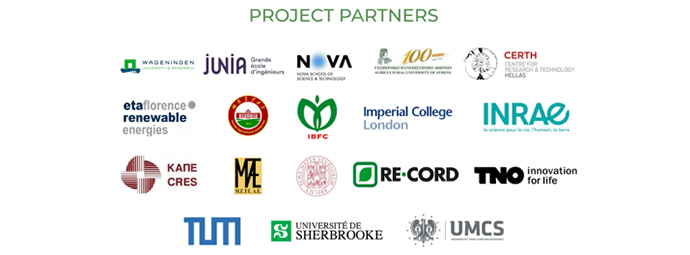Bridging The Gap Between Phytoremediation & Advanced Biofuels with Decision Making Tools
The latest GOLD workshop was a huge success reaching a global audience of nearly 200 people, online and person. The full conference room welcomed international delegates from Europe, India, China, USA, and Canada, and was exceptionally opened with a keynote speech from the European Commission’s Senior Expert Dr. Maria Georgiadou.
The workshop covered all aspects of not only GOLD’s research but also the two sister projects, CERESiS and Phy2Climate. Given the complexity of all three projects two of the key messages that came out of the workshop is the need for models and decision-making tools to tie all the different aspects together, and make the research useful to all stakeholders .

One such tool was presented by Dr. Giacomo Talluri, Politecnico di Torino, a model developed as part of project GOLD, to assess the techno-economical and sustainable performance of the entire value chain; from the uptake of pollutants from the soil into the biomass during the phytoremediation stages, to the conversion of the biomass into biofuels and bioproducts. The development of the model has considered the main building blocks of the research, such as pollutant uptake, crop type and treatment, and different conversion processes.
Taking the known outcomes into consideration the model initially stimulated 15 configurations based on the best performing crops for uptake and yield. Based on these initial stimulations a few take home messages could be presented during the workshop, firstly it is apparent that the modelled conversion technologies are not financially viable at small scale, however considering the cost of remediating land by traditional costly methods, there could be an overall cost saving, or balancing, aspect if the entire process is taken into consideration.
The Project Coordinator from CERESiS, Prof. Athanasios Rentizelas, presented another tool to support complex decisions for phytoremediation-to-biofuels value chains design. The idea behind this decision-making tool is to:
“Provide decision support to stakeholders and policy makers in order to achieve optimal win-win solutions for site-specific land decontamination through phytoremediation while simultaneously producing clean liquid biofuels”.
The objective of the model is to be able to provide an ambitious set of outputs, tailored to economic needs, environmental impact, and social sustainability. Based on varying scenarios the model aims to provide stakeholders with details on costs & revenues breakdown, transportation emissions, Life Cycle Analysis, and supply chain design, for each site under investigation.
Prof. Athanasios Rentizelas warned the audience of the challenges involved in the development of this decision-making tool, such us the need for simplifications to keep complexity low, the lack of basic data, the low TRLs of current research and the limited availability of phytoremediation results. Despite these hurdles the overall message was positive and this decision-making tool is set to be completed by mid this year.
If you’d like to watch the event again the full recording can be found here: https://youtu.be/-2hhru10W3U
About GOLD
GOLD - Bridging the gap between phytoremediation solutions on growing energy crops on contaminated lands and clean biofuel production, is a Research and Innovation Action started on 1st May 2021 that will continue through April 2025.
Website: https://gold-h2020.eu/
Contacts: info@gold-h2020.eu // Emma Fromant (Communication Manager, ETA): emma.fromant@etaflorence.it
Coordinator: Alexopoulou Efi, Centre for Renewable Energy Sources and Saving (CRES): ealex@cres.gr


The project has received funding from the European Union’s Horizon 2020 Research and Innovation Programme under Grant Agreement No. 101006873. Views and opinions expressed are however those of the author(s) only and do not necessarily reflect those of the European Union. Neither the European Union nor the granting authority can be held responsible for them.